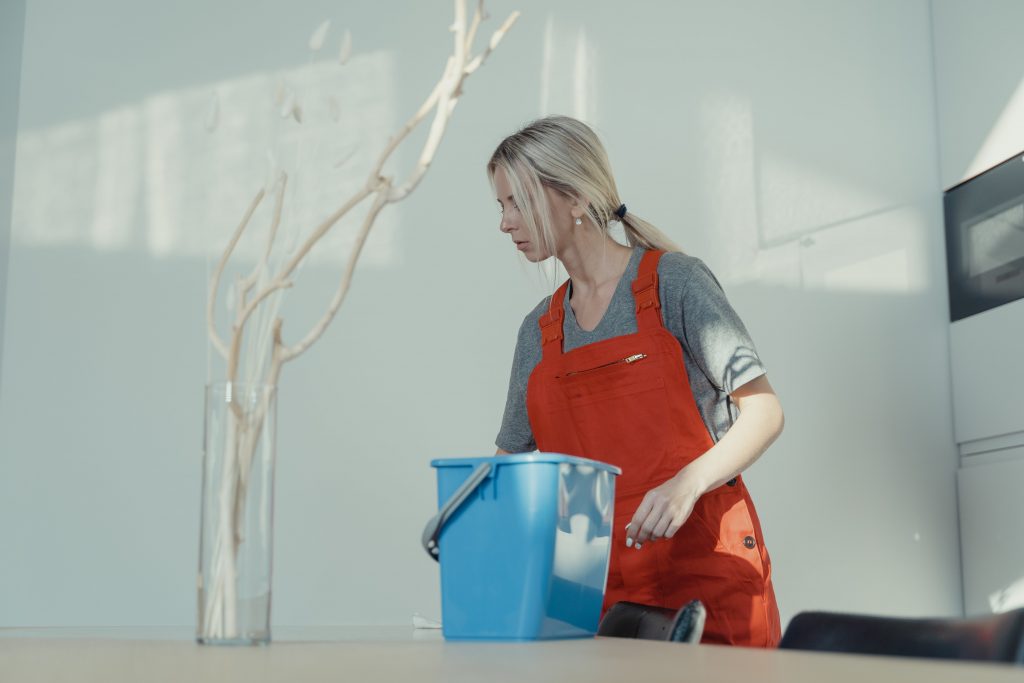For all those who are not going on vacation but can still take time off, the time “between the years” is the ideal time to tidy up. After all, a tidy start to the new year creates space for new ideas and developments.
Anyone who thinks that tidying up only helps to organize the “outside” is underestimating the dynamics of the process. This also applies to those who want to attribute an esoteric component to the power of clearing actions. However, this has nothing to do with esotericism, but simply follows the wisdom that emotional stuff is also a burden. Or, as the British author Karen Kingston puts it in her book “Feng Shui against the clutter of everyday life”: “If you put the outer world in order, there will also be changes in the inner world.” However, this is easier said than done, because the fact is that tidying up also means having to separate and let go. That’s what makes it so exhausting and sometimes challenges us emotionally.
Chaos robs power
Life has a tendency to fill empty spaces. And to let garbage corners grow continuously once they have been created. In this context, researchers are familiar with the “Broken Windows Theory“, which is based on the observation that a broken window that is not repaired will result in the destruction of the remaining windows within a very short period of time, until the building is completely dilapidated. Not a nice thought, but one that is often observed in reality.
From the window to your own workplace
But you don’t have to look at broken windows. A glance at your own desk is enough. Stacks are pent-up energy. Seeing them every day creates inner stress and unconsciously burdens us. The pile of newspapers constantly reminds us that we want to read more. The pile of files is evidence of unfinished work. And then our guilty conscience kicks in and robs us of energy. Now we certainly can’t throw everything away, but we can think of a system to reduce the piles. Then things don’t determine you, but you set the direction.
Of course, tidiness is a very individual matter. However, anyone who internalizes how they personally take care of clutter in the second step after tidying up already has the key to order in their hands. Whether it’s the urge to collect, the compulsion to pick up or the phenomenon of pile formation – once the strategy has been uncovered, it will be easier to keep things tidy in future.
Tips against chaos
One helpful strategy in the fight against chaos, for example, is to set a quality standard for the things that are allowed to surround you. You can practise this in advance on your own closet. Go through it piece by piece, write down what quality means to you. Non-iron, certain colors, high cotton content, etc. Then define what you don’t like. For example, clothes that are not suitable for the tumble dryer or hand washing. And the next time you go shopping, you’ll be better able to decide whether that tempting little dress really fits in your wardrobe or not. And then apply the principle to all the other areas you want to tidy up.
Where to start?
What if the chaos has already spread and you are not one of the geniuses who can handle it? First of all, it makes sense not to take on too much at once. Start with a drawer. Clear everything out, clean the container thoroughly and then put everything back in piece by piece. Choose what can and can’t go back in according to your quality criteria. Anything that you no longer use, don’t like or is broken is thrown away. If it is still usable, you can of course give it away or sell it.
For those who are undecided, the ABC method can be used for sorting. A is all you want to keep. B is a matter of negotiation and C is what can go. You go through the B box again a day later and make a new decision. The following questions will help:
- Does it increase my energy when I think about this object or look at it?
- Do I love it with all my heart?
- Is it really useful?
If the uncertainty remains, the item goes back into the box and then into the attic or cellar, or you ask a friend to store it for a set period of time. If we do not miss the items, they will be disposed of permanently after this period.
Conclusion: life is better when it’s tidy
Creating and maintaining order is worthwhile. Your life becomes less hectic, you have more energy and more time. And you end up with even more money, because clutter and disorganization also have an impact on your wallet: things that we hoard and pile up need space and space costs money. And that can be saved in the truest sense of the word.



